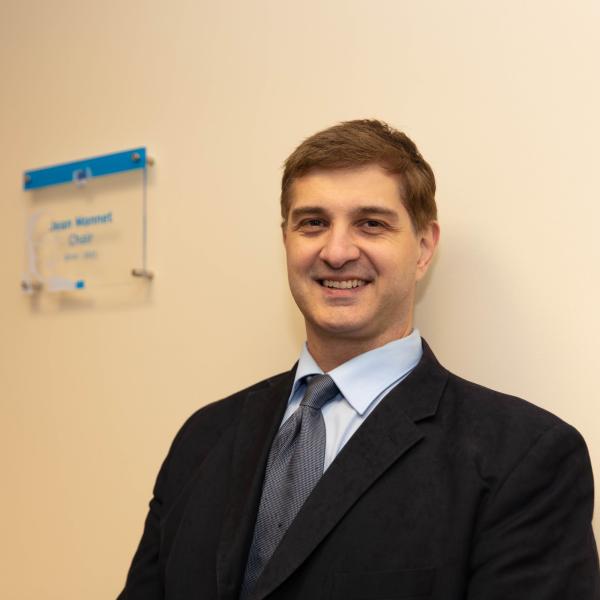Overview
The International Master in Security, Intelligence and Strategic Studies (IMSISS) is a 24 month Erasmus Mundus Joint Master Degree (EMJMD) developed by a consortium of four European universities –University of Glasgow (UK), Dublin City University (Ireland), Charles University in Prague (Czech Republic) and University of Trento (Italy).
Students on this degree programme will examine a broad range of contemporary security challenges, such as terrorism, civil war and conflict, mass migration, energy supply security, cyber security and new technologies, and transnational and serious organised crime. Students will also explore the intelligence and strategic approaches used by governmental and non-governmental actors to combat these threats.
The degree adopts a unique approach to the study of security by combining theoretical, applied and empirical knowledge and skill sets. Students will have the opportunity to meet with and work alongside a range of academics and researchers from international partner universities and think tanks from around the world, as well as practitioner experts from governmental and industry security and defence sectors.
Erasmus Mundus scholarships are available for the programme. Further information and details on how to apply can be found on the IMSISS website: https://www.securityintelligence-erasmusmundus.eu/
Why DCU
DCU People

Hi, I am Prof Christian Kaunert and I am the Chair of the International Master in Security, Intelligence, and Strategic Studies at DCU.
Read more about Christian Kaunert
Careers & Further Options
Careers
As a student of the IMSISS programme, you will develop many aptitudes and experiences attractive to employers. They have the opportunity to undertake short study visits to other universities and can apply for work-based learning placements as part of the independent study semester. On the labour market, there is a need for knowledgeable, well-informed experts with the skills to not only react to crises but to identify and anticipate the threats and challenges that create crises.
These experts can and should come from civilian (e.g. academia, governmental, non-governmental and private sectors) as well as military backgrounds. Bridging these ‘expert’ security communities and ensuring opportunities for dedicated training and shared knowledge, experiences and best practice is the purpose of this IMSISS degree programme.
The programme will provide students with the training and knowledge to move into national/ international government/ civil service, NGOs, private security sector, media, armed forces, business related activities (i.e. risk analysis) or academia.
Entry Requirements
For entry requirements for this programme, please click on link below:
https://www.gla.ac.uk/postgraduate/taught/internationalsecurity/#tab=3
Programme Structure
The programme is structured around four mobility periods across two years. During Year 1 you will undertake a series of core and optional courses reflecting key themes and research design.
In Year 2 you will choose a specialist concentration containing a range of themed courses. Also included is a fourth flexible study period, during which time you will complete your independent study (dissertation) and may have the opportunity to undertake a work-based learning placement with a relevant associate partner.
Each mobility period is designed to provide you with a variety of perspectives on the three core themes of the programme and to deve
- International security & strategic thought (UofG)
- Intelligence analysis & policy making (UofG)
- European & international security strategies (UofG)
- Intelligence & security analysis: theory & practice (DCU)
- Political terrorism (DCU)
- Conflict, security & peacebuilding (DCU)
- Politics of the Middle East & North Africa (DCU)
- Arms control & disarmament (Charles)
- Economic warfare (Charles)
- Radicalisation & deradicalisation (Charles)
- Cyber security (Charles)
- Space security (Charles)
- Ethics & violence (Charles)
NOTE: An optional summer school, provided by OTH Regensburg, includes training on data analytics, social network analysis, and methods of strategic intelligence and analysis, such as the intel cycle and target centric approaches.
International security presents complex, challenging realities for a wide range of actors from nation states and international organisations, to multinational corporations. Globalisation and increased interdependency has radically changed the way we view security in relation to state, society, the economy and even the biosphere.
There is a demand for greater attention and coordinated responses from the international community, including not only individual nation states but also international organisations such as the EU, the African Union (AU), the United Nations (UN) and security alliances such as NATO.
To support these organisations there is a need for knowledgeable, well informed experts with the skills to not only react to crises, but to identify and anticipate the threats and challenges that create crises. These experts can and should come from civilian (e.g. academia, governmental, non-governmental and private sectors) as well as military backgrounds.
Bridging these ‘expert’ security communities and ensuring opportunities for dedicated training and shared knowledge, experiences and best practice is the purpose of this IMSISS degree programme.
IMSISS has five key objectives which seek to ensure students:
- attain a firm understanding of the theoretical concepts that inform contemporary security studies
- acquire the expertise and necessary skills to critically engage with security, intelligence and strategy in an applied manner;
- are provided with experiential learning and employability enhancement through work-based learning opportunities with practitioner organisations;
- have access to a range of academic and non-academic personnel from industry and business, the military, intelligence community, governmental and non-governmental organisations thus helping to understand how security experts shape security practice
- utilise mobility experiences to develop, appreciate the importance of, and articulate intercultural awareness as a key aspect of addressing security challenges
Fees and Funding
Fees
How To Apply
Applications for this programme are made to The University of Glasgow, please click on link below:
Life On Campus
At DCU, our students can expect a unique campus experience. We are known for our excellent teaching and learning facilities, our active clubs and societies, and our great social and sporting facilities. All this makes DCU an exciting place to be.
DCU has three academic campuses; Glasnevin, St. Patrick’s and All Hallows (both in Drumcondra), all close to Dublin City centre.
They can be reached by public transport, Dublin Bus and Bus Éireann, with our Drumcondra campuses a ten minute walk from Drumcondra Train Station. Glasnevin is a 20 minute walk from St Patrick’s and All Hallows. They are also linked by Dublin Bus.
Each campus has a library (O’Reilly, Cregan and Woodlock Hall), study spaces, restaurants, and on-campus residencies. There are sports facilities on Glasnevin and St. Patrick’s, and there is a dedicated sports campus, St Claire’s, located near Glasnevin on the Ballymun Road.
DCU’s 19,000 students have access to exceptional teaching and learning facilities across our three academic campuses.
These include modern learning theatres, research centres, a new media and TV studio, radio/podcast studios, computer suites and advanced labs in the areas of Languages, Engineering, Physics, Chemistry and Biotechnology, as well as a Sports Performance centre and a training hospital ward. In 2021, we opened our first virtual reality ‘Leadership Lab’, which is located in our Business School.
We continue to improve and update our facilities. For example, construction of a new world-class STEM facility is underway on the Glasnevin campus. With capacity for an extra 3,000 STEM students, this facility will advance DCU’s international reputation for excellence in science and health, computing and engineering disciplines.
Studying in DCU isn’t just about course work. The university is rich in student life and activities.
There are more than 140 clubs and societies for students in DCU, with ‘Clubs & Socs’ days taking place on both the Glasnevin and Drumcondra campuses at the start of the academic year. They span everything from rugby to rock climbing, anime to jazz.
For many students, sport is an important part of the DCU experience. DCU’s Sports Complex boasts a 25 metre swimming pool, fitness centre gym, all-weather pitches and squash courts, as well as soccer, GAA and rugby pitches. DCU Dóchas Éireann, the university’s GAA club, is the largest third level Gaelic Games club in the country. Meanwhile, DCU Athletics has been Ireland’s highest achieving university club for many years. And DCU has dozens of other clubs to get involved in, from Archery to Weightlifting.
The Glasnevin campus is home to our purpose built, state-of-the-art student centre, The U, which serves the needs of a rapidly growing student body. Here, you will find the Student Leadership and Lifeskills Centre, performing arts and cultural spaces for students and the wider community, and the Entrepreneurship and Innovation Hub. Also located on our Glasnevin campus is The Helix, our renowned performing arts centre.
On our St Patrick’s campus, we have the Java Student Hub, a vibrant, warm and welcoming space where students can meet for coffee, play music, use the projector to watch events, or just relax. The walls of the Java Hub were designed based on the cultural history of St Patrick’s Campus, including the special references to the notable sporting history and history of the arts.
We have a number of academic, professional and social supports for students.
Student Advice & Learning Skills Centre - Offers a wide range of supports and services to students and advice
The Writing Centre - drop-in writing workshops for students through the academic year
Maths Learning Centre - provides maths support for students of all ability levels with maths modules
Student Learning - facilitate the transition from passive to active learning for students at DCU, by teaching study skills, nurturing critical thinking and building student confidence.
Careers work with students to help them on their professional journey into graduate employment.
Our student support team offers a comprehensive support programme, helping students make that all important transition into university life and focusing on building confidence and skills which are key to success at third level.

DCU Glasnevin Campus
FAQs
Is DCU all one campus?
DCU is a multi campus university - the Glasnevin, St Patrick's and All Hallows campuses. The St Patrick's campus is where the Education courses are taught and some of the subjects from the BA Joint Honours degree. There is a 20-25 minute walk between the campuses but there are buses and bikes available to go between them also.
Click here to see maps of all of our campuses
If I'm studying on the St Patrick's campus, can I use the library and sports centre on the Glasnevin campus?
Yes, all facilities such as sports and accommodation are open for all DCU students to avail of.
Are there libraries in DCU and if they have wifi and work stations?
We have a brand new state of the art four floor library on our St. Patrick's Campus which complements the existing library on the Glasnevin campus. There is free wifi, work stations as well as desktop computers.
Does DCU provide accommodation?
DCU does have on-campus accommodation for undergraduate and postgraduate students, and you can find out more and apply via the Accommodation Office webpage.







